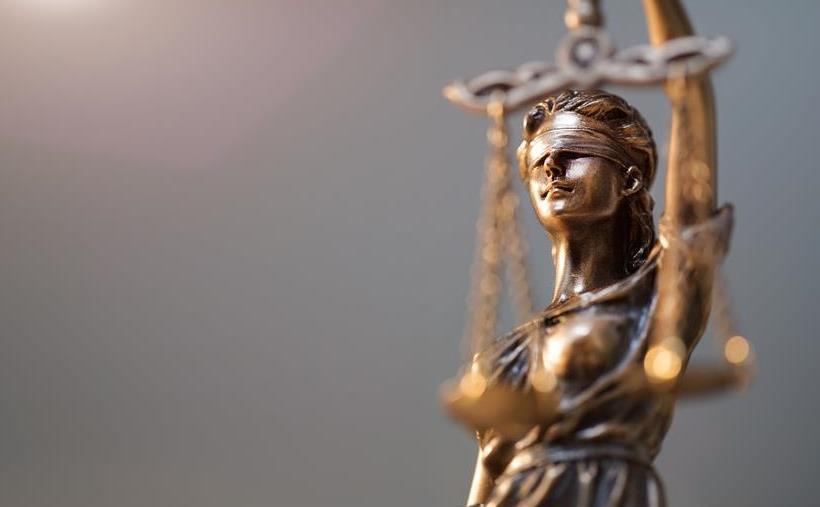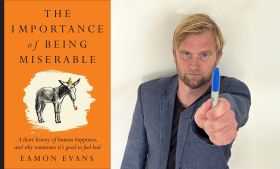The arts sector has been hit hard with cancellations and disruption because of the COVID-19 crisis. Arts Law has put together answers to some of the most common questions we’ve received from artists and arts organisations.
Arts Law is a community legal service providing legal advice and support to artists and arts organisations. Where Arts Law may not be equipped to help with certain issues, particularly non-legal ones, we have linked to other services that we recommend you contact.
CLEARING UP YOUR LEGAL QUESTIONS:
Q. Is there a suggested and appropriate way to communicate about events/workshops/shows being cancelled?
A: It is up to you how you word your communications. There is no right or wrong way to do this. We suggest you look at how similar organisations have worded their announcements for ideas, these will be available on their websites or social media.
Q. What does an artist or small-medium arts organisation need to do when an event has been cancelled?
A: The first thing to do is check the contract between the parties to see what it says. Then, communicate! Most people and organisations will be open to varying the contract to postpone deadlines/events until the pandemic has passed to safe levels. Try and reach an agreement on postponing dates with the affected parties.
Q. Are organisers obligated to pay performers who have been booked if an event is cancelled?
A: The first place to look is the contract between the organisers and the performers.If it was in writing, this can be straightforward, if it wasn’t it can become complicated. See answers above. Many ticketing platforms, such as Eventbrite, are offering to refund booking fees for cancelled events.
Q. What are my obligations to refund ticket-holders for cancelled events?
A: Start with what the terms and conditions say about refunds. Even if they say there’s no entitlement to a refund, you will need to think about whether to offer refunds or credits because of the extraordinary circumstances we are facing. Remember that your ticket holders are the people that are likely to support your organisation in the future. You should consider if a refusal to issue refunds will damage your relationships with your audience and discourage them from purchasing tickets later down the track.
Q. Can I get a refund if I’ve bought a ticket for an event which is cancelled because of COVID-19?
A: Start with what the terms and conditions say about refunds. Some organisers are offering refunds or credits even if the terms and conditions say there are no refunds. So the second step is to look at the website or contact them to see what they are offering.
Q. What if I don’t have a formal contract in place? What are my rights?
A: A contract can be oral, or in the form of an email or other communication. If you don’t have a written agreement you may have an oral contract that’s enforceable. You will need to work out exactly what agreement was made and preferably confirm this with the other party. When a contract isn’t in writing, or not all in writing, it can sometimes be difficult for both parties to recall or agree on what they’d agreed when the legal relationship was entered into. Have a look for evidence to show what the contract was e.g. invoices.
Q. Can an arts organisation state that they will not be responsible for a participant’s health if they attend a workshop/event?
A: Usually an event organiser/gallery/theatre etc would be responsible for any injuries sustained by the participants as a result of the organiser failing to take reasonable care. It is reasonable to assume that any event organiser is now aware of the risks of COVID-19.
Q. Will my insurance cover me for any costs involved in cancelled events or completion of projects?
A: It depends. First, check your insurance policy to see what it says. The COVID-19 event is well out of the ordinary so see what kinds of exceptions there are to the insurance company paying for the financial loss because events have been cancelled as a result of an extreme event such as this.
Arts Law can advise you on your legal rights under the insurance policy. If you don’t have a copy, you can ask your insurer to send you one. Alternatively you may also wish to contact the Insurance Rights Service: general hotline number 1300 663 464.
Q. If I take out a new insurance policy will it cover me for COVID-19?
A: Generally, no. You will have to check with your insurer and the policy but it is assumed that because people are now aware of the risks associated with COVID-19 it is considered a “known risk” and will not be covered by a new policy.
Q. I have heard my contract might be cancelled or I might be able to cancel my contract due to a “force majeure”? What is a force majeure?
A: A force majeure is an unforeseeable, uncontrolled or extraordinary event or set of circumstances that causes you or another party to be unable to complete a contract.
Q. Is the COVID-19 outbreak considered an unforeseen event or “force majeure” under a contract?
A: This will depend on the wording of the contract and you should check if your contract has a force majeure clause. This refers to unforeseeable circumstances that prevent someone from fulfilling their side of the contract. This clause might allow you, or the other party, to cancel or suspend the contract. It depends on the wording of the clause – in particular, the COVID-19 outbreak could be covered if the clause specifically includes “pandemic”, “epidemic”, “quarantine”, “acts of government” or perhaps even “acts of God”. Even if your contract does not contain a force majeure clause, there might be other ways to terminate the contract. You should obtain legal advice about this and Arts Law can help through our Document Review Service.
Q. Does “force majeure” apply to me if it’s not stated in the contract or if I have an oral contract?
A: No it doesn’t. The opportunity to use the force majeure option to cancel a contract only exists if there is a specific clause about it in the contract. However, if you can’t hold up your side of the contract because of COVID-19, you may have a legal argument that an event outside of your control has stopped or “frustrated” you from fulfilling your part of the deal. You will need legal advice before relying on this argument, contact Arts Law for help with this.
Q. How will this impact any funding agreements I have in place?
A: You should refer to your funding agreement in the first instance to look for any terms around the process for varying the delivery of your project in the case of unexpected disruptions. If the process is unclear, you should contact your funder to clarify what your obligations are and if it is possible to shift your project milestones and deadlines. If the project is unable to go ahead, you should inform the funder as soon as possible.
Q. I have an employment related issue, where can I go for help?
A: Whether you are an employer or an employee, you should first look at the Fair Work Ombudsman’s website for further information. If an artist or arts organisation needs further legal advice about an employment issue Arts Law may be able to assist. Arts workers and administrators should contact their local community legal centre as Arts Law is unable to assist this group. See the National Association of Community Legal Centres website to find one near you.
Q. My artworks are on consignment to a gallery and I’m concerned it may go broke. What should I do?
A: First, ask the gallery to return the artworks to you if you have concerns. Even if you don’t have these concerns (but especially if you do) check to see if you’ve registered all your artworks held by an art gallery with the Personal Property Securities Register (PPSR). If you haven’t registered the works, they may form part of the gallery’s assets and can be used by the liquidator to pay the debts of the gallery. It may not be too late to register works you’ve consigned to a gallery (unless the gallery is already bankrupt). Go to the PPSR website to download and complete the PPSR form and see the Information Sheet for more details. Contact Arts Law if you need help with this.
Q. How long do I have to pay my, or my company’s, debts before I become bankrupt or the company is insolvent?
A: The first thing to do is to contact the people you owe money to and explain your situation and that you need more time to pay. Bankrupting someone begins by the creditor (the person who is owed money) filing a Bankruptcy Notice in court (or a Statutory Demand if a company owes them the money) and giving a copy to the person or company who owes them the debt (the debtor). Normally the debt must be at least $5,000 for individuals and $2,000 for companies. The person/company who owes the debt must pay the money owed within 21 days of receiving the Notice, before the creditor can take the next step in the process to bankrupt the them (or wind up the company).
The federal government has introduced measures and changed the law for an interim period of six months (to 25 September 2020) to protect people who are in financial difficulties because of the COVID-19 outbreak from becoming bankrupt. During this period, the amount of the debt must be at least $20,000 before the creditor can begin steps to bankrupt someone (or wind up a company) and the person who owes the debt then has six months to pay the money before the next step can be taken.
Q. I am a director of a company and I’m worried that I may be personally responsible for the company’s debts if we continue in business when we’ve lost all our bookings and can’t open the venue. What can I do?
A: The government has suspended personal liability for directors operating a company while it is broke (insolvent) for six months (to 25 September 2020). Normally a director can be personally liable for debts incurred by the company when it was reasonable to know that the company was broke (or incurring the debt would make it broke). What this change to the law means is that if you are running a company you can continue to trade and pay bills for this six month period provided the debts are part of the ordinary course of the business (i.e. to facilitate the business continuing to operate). This is without risk of being personally responsible for those debts. Directors still need to act in good faith, with reasonable care, and comply with all their obligations under the Corporations Act. They need to have a plan and document their actions. More information.
Q. I am concerned that my employees may be putting themselves at risk by the extra work they are doing to cope with the COVID-19 virus and to ensure the artists they are working with can continue to work and earn income. What can I do about this?
A: Check your workplace policy and see what it says. Communicate clearly with staff about what risks they can and can’t take. For example, if there’s any sign that their personal safety is at risk, they must cease work and close the centre down if necessary.
Take care, and stay informed.
This article was first published by the Arts Law Centre of Australia.






